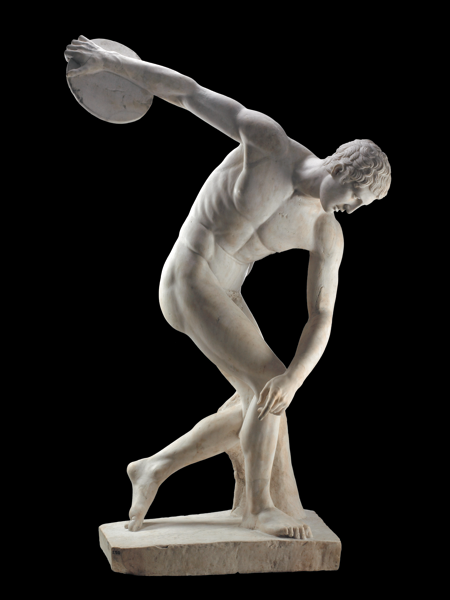
A new record was set yesterday in a Sotheby’s New York salesroom as three international bidders competed for lot 173, an original manuscript written by Pierre de Coubertin outlining the modern revival of the Olympic Games. The 12-minute bidding battle resulted in an anonymous victor winning the manuscript and breaking the world auction record for sports memorabilia.
Originally estimated at $1 million, the 14-page manuscript sold for an astounding $8.8 million. The previous world auction record for sports memorabilia was held by a Babe Ruth Yankees jersey that sold for $5.64 million earlier this year (the record before that also belonged to the Bambino, for a 1920 jersey that sold for $4.4 million).
The sale set a personal record for the auctioneer, too, who has never hammered numbers quite this high in his 30-plus years of book and manuscript sales. “It was a personal honor to serve as today’s auctioneer, as this marks my highest price on the rostrum in more than three decades at Sotheby’s,” Selby Kiffer, senior specialist in Sotheby’s Books & Manuscripts Department, said in a statement.
Olympic Games manifesto. Image courtesy of Sotheby’s.
The sale marked the first time the manifesto was publicly exhibited. Coubertin, a French aristocratic sports fan, wrote the manifesto in 1892 as a speech outlining his desire to revive the ancient Olympic Games as a modern and international athletic competition. This is the only known copy of the text, which materialized in the first modern Olympics being organized a few years later, in Athens in 1896.
“It is clear that the telegraph, railways, the telephone, the passionate research in science, congresses and exhibitions have done more for peace than any treaty or diplomatic convention,” Coubertin wrote in his manifesto. “Well, I hope that athletics will do even more. Those who have seen 30,000 people running through the rain to attend a football match will not think that I am exaggerating. Let us export rowers, runners and fencers; this is the free trade of the future, and the day that it is introduced into the everyday existence of old Europe, the cause of peace will receive new and powerful support.”